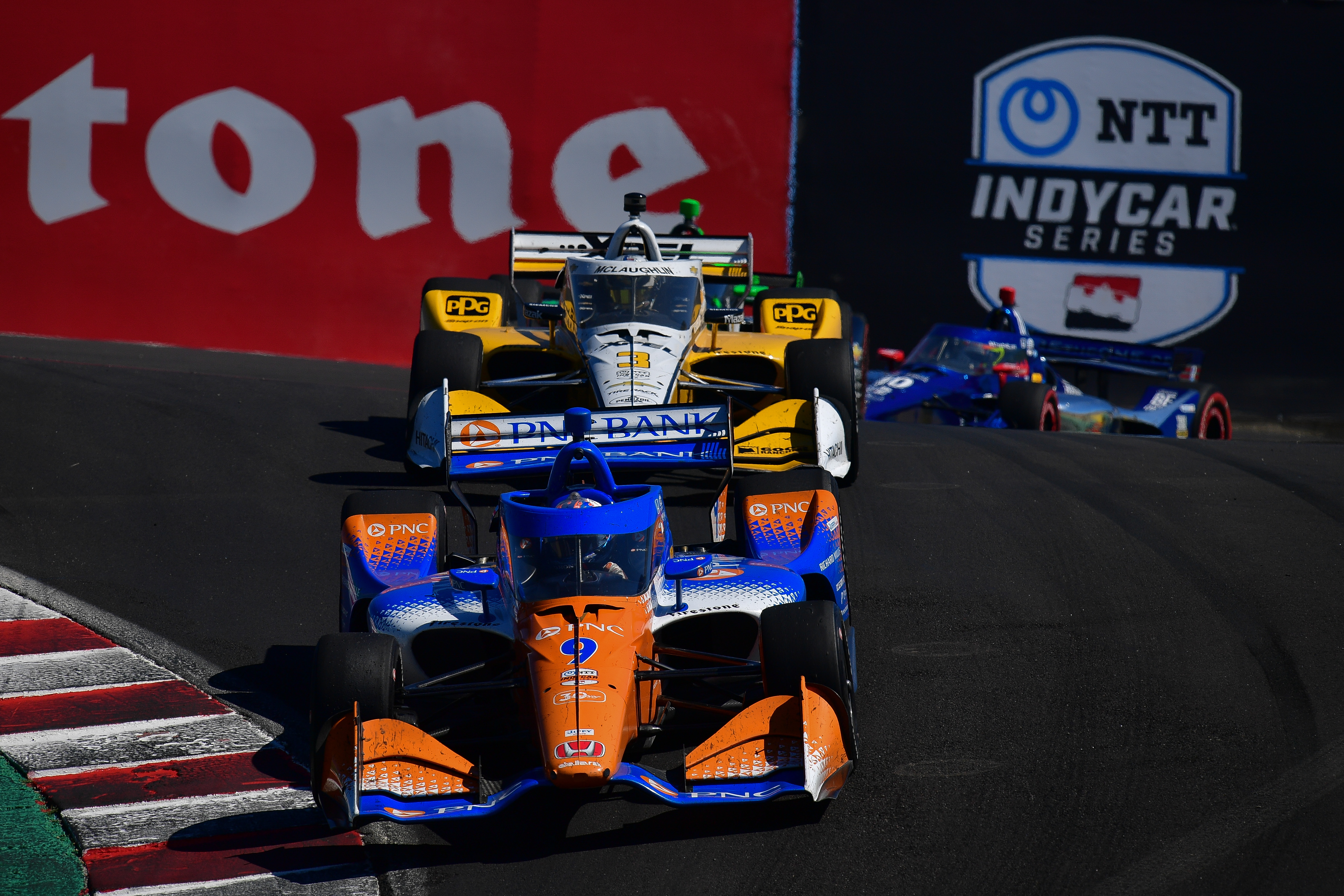At least from a team ownership standpoint, Chip Ganassi and Larry Foyt support IndyCar in its decision to delay the debut of the hybrid component into the summer months.
The hybrid component, which is an extension to the current generation engine platform, has been tested throughout the year and was supposed to debut to start the 2024 season will now be integrated at some point after the Indianapolis 500 in May.
There are still some bugs to work out, discovered over testing, but from a public-facing standpoint both owners made available to the media this week say it’s for the best.
“I think that’s part of why we’re having this delay, is IndyCar wants to be fair to the teams and make sure everybody’s got time to get some testing with it,” Foyt said. “Kudos to them for making that tough decision. I think that’s really, really good for all the teams to make sure we have time because everybody wants this thing to go really well. I think what they’re doing is good and it will help us out, too.”
“It’s unfortunate, no question,” said Ganassi, one of the winningest team owners in series history. “But it’s probably the right decision.
“Knowing all I know, and from what I understand, it was probably the right decision to make. Sure, it’s not our first choice. I wouldn’t say it’s the optimum thing to do, to delay it, but it was the right thing to do with everything I know.
“Having said that, if they bring it in halfway through the season, I don’t think it’s as big a deal as people would think. In the test that we’ve done with the hybrid, the teams are going to find it very easy to transmit over to that program when the time comes. I don’t see that as a big thing.
“We want to make sure it’s ready, when it’s ready for prime time, then bring it along, but not too soon to discourage the type of great racing we have right now. I don’t think we want to do anything to impede that. Our on-track product is very, very good right now. More passes, more on-track passes than any open-wheel series in the world, I think, right? I think that speaks for itself in terms of IndyCar.”
Ganassi says he wouldn’t want any issues with the hybrid extension marring the Indianapolis 500.
“We don’t want to mess that up or we don’t want to mess up the Greatest Spectacle in Racing, which is the Indianapolis 500,” Ganassi said. “I think if the hybrid comes along sometime after that, it will be fine. It won’t be such a big challenge that we’re all distorted about here on a Tuesday.”
There is another more pressing issue adjacent to the hybrid system and that’s the recent threat from Honda, one of the two engine manufacturers alongside Chevrolet, to leave the series if costs aren’t reduced.
The best way to do that would be to find a third manufacturer or convincing Chevrolet to support two-thirds of the field instead of a 50-50 split.
“I heard those same comments that we all read,” Ganassi said. “I really haven’t caught up with Honda lately, haven’t caught up with them yet to discuss what exactly they mean and where they’re headed. I think it certainly got our attention. It’s something we have to keep a close eye on.”
State of Honda and Chevy
Speaking to RACER, American Honda Motorsports Manager Chuck Schifsky made the following overtures that could keep them in the series:
- To make the core internal combustion engine a spec platform that both Chevrolet and Honda use; built by Ilmor
- Instead of creating variety in the engine itself, Schifsky wants the software to be what distinguishes to two manufaturers
- Schifsky says this could open the door for up to five manufacturers, once the cost of building the actual motor is eliminated. It’s not too different than the NASCAR Truck Series model, which also uses a spec Ilmor engine based around the Chevrolet LS2 motor.
Chevrolet, through VP of Performance and Motorsports Jim Campbell, also told RACER that it would be, as it always has been, willing to have conversations with Honda and IndyCar about any competition proposal.
“My view is that in the right forum, we can discuss how to lower costs,” Campbell said. “It could be in engineering, in aero, aero development, aero testing, wind tunnels, on-track testing; how much time we give the teams. In other series where we’ve done this, we’re relying more on simulation. So there’s a lot of ways to do it; that’s the right spot to do it – with the OEMs — when the series calls us together. That’s the forum to do that, and that’s when we’ll do it.”
But Campbell also said Chevrolet wants IndyCar to be a place where multiple engine manufacturers compete against each other. It was implied, albeit with a caveat, to be actual engine competition and not just chips and engineering data.
Matt Weaver is a Motorsports Insider for Sportsnaut. Follow him on Twitter.

